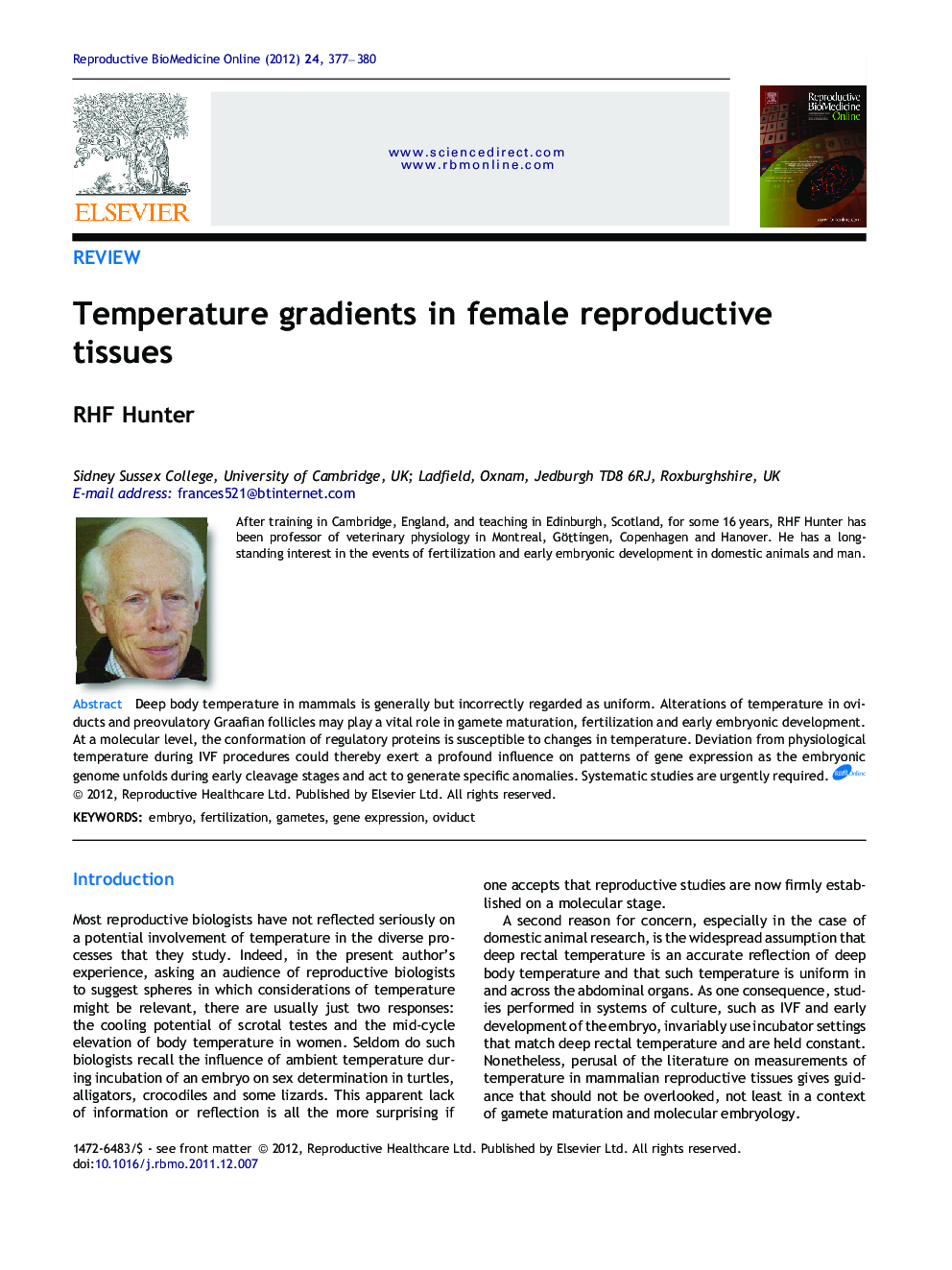| Article ID | Journal | Published Year | Pages | File Type |
|---|---|---|---|---|
| 3970691 | Reproductive BioMedicine Online | 2012 | 4 Pages |
Deep body temperature in mammals is generally but incorrectly regarded as uniform. Alterations of temperature in oviducts and preovulatory Graafian follicles may play a vital role in gamete maturation, fertilization and early embryonic development. At a molecular level, the conformation of regulatory proteins is susceptible to changes in temperature. Deviation from physiological temperature during IVF procedures could thereby exert a profound influence on patterns of gene expression as the embryonic genome unfolds during early cleavage stages and act to generate specific anomalies. Systematic studies are urgently required.The temperature of internal body organs in mammals such as rabbits and humans is widely regarded as uniform, but this is not correct. Temperatures in reproductive tissues such as ovaries and oviducts vary according to the stage of a menstrual or oestrous cycle. Such changes in temperature are thought to be critically involved in the maturation of eggs and spermatozoa and thus in events shortly before and after fertilization. Proteins in the cytoplasm and nuclei of eggs and very young embryos respond to small shifts in temperature by changing their three-dimensional shape. Conformational modifications in regulatory proteins in the nucleus would influence patterns of gene expression in developing embryos and may, when perturbed, alter the sexual phenotype of an individual. In the practical context of IVF, studies are needed of the influence of culturing gametes and embryos at different temperatures and ranges of temperature on the patterns of gene expression in preimplantation embryos.
